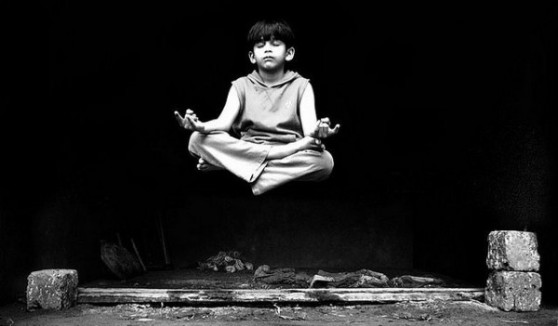5 Ways to Practice Mindfulness in a Harsh Political Climate.

{source}
This political season, I embarked on a mission to understand political aggression.
I found myself observing the political communication, attitudes and actions among presidential candidates, political leaders, families, classmates, peers, professors, and strangers. It became clear that the nation is stuck in a cycle of political hostility, and that every citizen has the power to choose whether to fuel or break this cycle.
In the United States, political parties encourage citizens to take a side, and taking a side too often entails becoming irrationally defensive over that side, while ruthlessly bashing the other.
This aggression has ultimately resulted in a range of violence, from citizens being assaulted at political conventions for supporting a candidate of their choice, to students being ostracized in classrooms if they dare to share a political view that opposes the majority.
Day after day, Facebook and Twitter newsfeeds are filled with one-sided political messages, which fuel anger and polarization while leaving no trace of collaborative solutions to pertinent issues.
It occurred to me, how will defending a political party, mainly because it’s your side, and hating on the other, make our country a better place to live in? Bashing others, whether it is a person or a political party, does not lead to solutions. This vicious circle of aggression is serving as a barrier to collaborative solutions and rational compromise.
So what can you do? Stop being a hater! Every citizen has the power to break this cycle of aggression, and to fuel a new cycle of collaboration. Here is how to start:
1. Recognize defensiveness: We are all guilty. If we have chosen a political party, we have unfortunately become accustomed to being defensive of that party, even before we know the facts (not to mention that the facts are often difficult to come by). The first step to ending the cycle of aggression is to recognize our own defensiveness. Ask yourself these questions:
- Do I understand the wants and needs of both sides?
- Do I have all of the facts?
- Can I be sure that my facts are verifiable?
- Will being defensive of my side make this country a better place to live in?
2. Stop reacting, start listening: Once we recognize that we are being defensive, it is essential that we stop defending and start listening to what others have to say. Ask yourself these questions:
- What is the underlying want or need that is being argued for?
- Do I understand the want or need of all parties?
- Is that want or need a human right?
- Will that want or need cause harm?
- What might be a logical and fair compromise?
3. Recognize flaws of all political parties: Every political party is flawed, including our own. Every political party is guilty of repeatedly committing acts of hate and aggression. And every political party is failing at collaborating with one another in order to reach compromises and create positive change. It is essential that we choose to see and acknowledge these flaws, so that positive progress can be achieved. Ask yourself these questions:
- Is my political party collaborating across political parties to reach rational compromise and create positive change?
- Is my political party causing harm to anyone or anything?
- Is my political party discriminating against anyone or anything?
- Is my political party respecting human rights of all people?
4. Post mindfully: What are you posting? We are responsible for fueling the cycle of aggression. One-sided political posts often fuel anger and hate without providing opportunities for collaborative solutions. Instead of posting or sharing one-sided comments, problems or solutions, focus on the need, and eliminate the bashing of others. Before posting something to social media, ask yourself these questions:
- Will this post fuel anger, hate or defensiveness?
- Will this post provide or deter an opportunity for collaborative solutions or rational compromise?
- Does this post bash anyone (a political party or a person)?
- Does this post focus on the need, or focus on the hate?
5. Choose collaboration: The paradigm of Us versus Them serves as the greatest barrier to progress and solutions. Instead of focusing on the best interest of our political party, we need to focus on the best interest of all citizens, and the nation as a whole. We all have the power to choose collaboration by working to understand all sides of the want or need at hand, and by exploring and inviting compromises and solutions.
All political leaders, regardless of party affiliation, are failing to work together to understand all angles of issues in order to produce progressive solutions. Instead of commending the bashing between political leaders or presidential candidates, ask for collaboration. Recognize that every time a political leader bashes another, they are perpetuating the cycle of aggression, and creating a barrier to collaboration.
Speak up, and tell our political leaders that they need to stop bashing and start collaborating.
***
Cathleen Bottini is a fun-loving horsewoman and yogi. Among her talents are writing and professional videography. She will graduate with her Masters of Public Health degree in May 2016, and aspires to be the CEO of a pediatric healthcare organization.
***
{Join us on Facebook, Twitter, Instagram & Pinterest}

